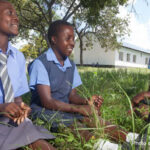Deadline 20 December 2021
The French National Centre for Distance Education (Centre National d’Enseignement à Distance, CNED) through its École d’ingénierie de la formation à distance, the French academic journal Distance and mediation of knowledge (Distances et médiations des savoirs, DMS) and the Open University UK are pleased to announce a bilingual French-English conference on the challenges and opportunities of distance education in the time of Covid-19 and its aftermath, Distance education: a brave new world? The conference will take place online on 20 and 21 October 2022.
When the closure of schools and universities was imposed by governments across the globe to curb the pandemic in March 2020, the use of digital tools and platforms became the only way to ensure continuity of teaching and learning. Thus, a form of emergency distance teaching unexpectedly appeared and was imposed on teachers, learners and all the staff who provide pedagogical, pastoral and administrative support, who create content and who manage logistics. This emergency form of distance teaching and hybrid teaching modes are still widespread around the world today.
This real-time and wide-scale phenomenon has had successes and failures. It has highlighted the diversity of models of distance education and their relative effectiveness, their various affordances and shortcomings, as well as the issue of their sustainability. It also seems to have profoundly changed individuals’ perceptions of distance learning within and outside educational institutions, regarding its advantages and disadvantages, its constraints and opportunities. In addition, the recent shift to distance education has transformed the issue of the remote mediation of knowledge – previously confined to experts – into a world-wide concern of public interest, widely publicised, discussed and commented on in the press as well as on social media. In some countries, remote or distance education has even become a quest for national prestige, through the promotion of flexible modes of teaching and learning that some other countries’ education systems have not been able to achieve so far. Finally, this phenomenon has severely tested the functioning of traditional education systems. It has changed the dynamics between public and private education providers, mainstream platforms and other information and communication tools. It has also accelerated the development of EdTech and strengthened the processes of industrialisation and privatisation of education on an unprecedented scale.
Conference themes: an open and diverse approach
This conference is organised by two pioneers in the field, the French National Centre for Distance Education and The Open University, on the initiative and with the support of the French academic journal Distances et médiations des savoirs (Distance and mediation of knowledge). The aim of the conference is to enable a scientific assessment of what has happened within the different contexts described above. To foster openness and promote rich dialogue, the multi- and interdisciplinary conference will be organised around four key themes:
- Developments in distance education policies and strategies
- Remote and online learning as a new focus for national policies
- Strategic and political choices of distance learning institutions
- National and international competition and/or collaboration
- Organisational flexibility v. institutional rigidity
- Decision-making process and awareness
- Transformation in teaching and learning
- Daily administrative organisation and risk assessment for distance education providers
- Well-established skills and competences v. new demands
- Support systems and adaptation of organisational structures
- Traditional v. new roles and tasks of teachers, learners and administrative and support staff
- Empowerment of and new dynamics among stakeholders
- Public and private sectors and the role of open educational resources and practices
- Teachers’ creativity v. process constraints
- Lessons learnt
- Educational models, configurations and practices
- Well-established teaching methodologies and new practices
- Traditional, new, tested and forthcoming models of distance, blended and online learning
- Instructional design, content development and learning design
- Convergence and divergence between practitioners and researchers
- Changing boundaries between face-to-face, blended and online modes
- Local and national specificities
- Educational models, configurations and practices
- Well-established teaching methodologies and new practices
- Traditional, new, tested and forthcoming models of distance, blended and online learning
- Instructional design, content development and learning design
- Convergence and divergence between practitioners and researchers
- Changing boundaries between face-to-face, blended and online modes
- Local and national specificities
The conference welcomes submissions from practitioners, researchers, decision-makers and students.
The conference aims to attract educators, researchers and teachers who are focused on the pedagogy of distance education and technology-enhanced teaching and learning, students and decision-makers in the field, and, more broadly anyone who has an interest in remote and online learning, particularly within the context of the pandemic. The conference is open to anyone working in institutions of distance education as well as institutions practising hybrid modes of teaching and learning, and to traditional institutions that only delivered face-to-face education until the pandemic and had to unexpectedly move to remote teaching.
Submissions
Abstracts are welcome in any areas of distance education related to the conference themes. Papers presenting theoretical, methodological or empirical research, case-studies and analyses of experiences are particularly welcome. Papers may therefore present testimonials and reflective practice as well as scientific contributions that adopt an analytical and theoretical lens.
- Abstracts may be submitted in French or in English.
- Abstracts must be between 300 to 600 words including references (if required).
- Conference presentations will last 10-15 minutes with 5 minutes for questions to maximise the number of sessions and increase the diversity of views and experiences.
- The scientific committee may ask authors to amend their accepted abstracts before their publication on the conference website. Authors will be asked to submit short papers (3,000 to 4,000 words including references) for publication on the conference website before the conference.
- Selected conference proceedings will be published in a special issue of the journal Distances et médiations des savoirs (Distance and mediation of knowledge) based on the conference themes. Authors who wish to submit full papers for the special issue will be provided with further information after the conference. The submitted abstracts will be evaluated by members of the conference scientific committee through a double-blind review process.
Important dates for authors
28 October 2021 Call for papers opens
20 December 2021 Deadline for submissions of abstracts (300 to 600 words including references)
15 February 2022 Notifications to authors (including possible revisions)
1 June 2022 Deadline for submission of short papers (3,000 to 4,000 words including references)
30 September 2022 Publication of short papers prior to the conference
20-21 October 2022 Online conference
After the conference (date to be confirmed)
Opportunity to submit full papers for publication in DMS (details to be confirmed)
To submit your abstract please go to the conference website: https://distance-2022.sciencesconf.org





